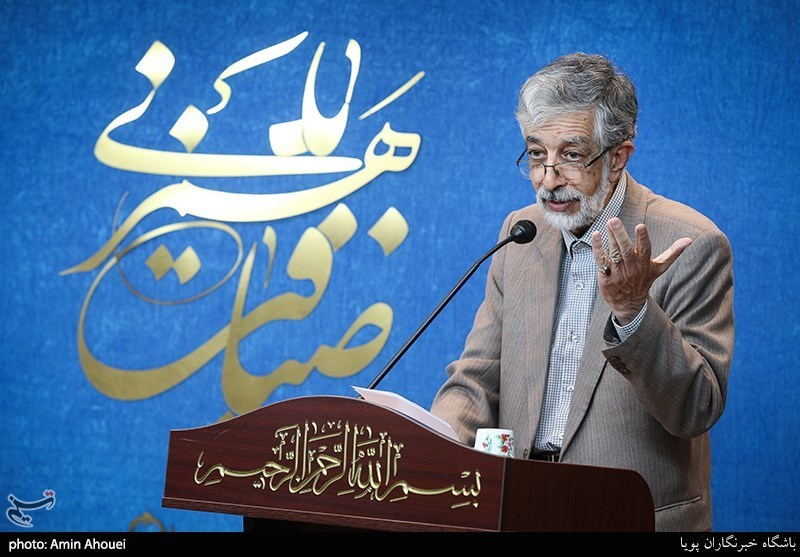RASC News Agency: In a renewed cultural push to protect and revitalize the Persian language across its historical expanse, Gholam Ali Haddad Adel, head of Iran’s Academy of Persian Language and Literature, has emphasized the urgent need to preserve the linguistic and civilizational legacy of Persian in neighboring countries most notably in Afghanistan and India. Speaking at the 11th National Conference of Persian Language Teaching Institutes in Tehran, Haddad-Adel underscored that the Persian language is not merely a tool of communication but a cornerstone of cultural, historical, and civilizational identity for millions. “Preserving Persian in regions where it has flourished for centuries is not just a cultural obligation it is a strategic necessity,” he asserted.
Haddad-Adel singled out Afghanistan and India as territories where the Persian language once served as the lingua franca of administration, poetry, and intellectual life. “The Persian language must not be allowed to wither in lands where it once shaped empires and philosophies,” he said, framing linguistic preservation as both a cultural responsibility and a strategic imperative. Turning his attention to Tajikistan, where Persian survives under the name “Tajiki” but written in Cyrillic script, Adel stressed the importance of reintroducing the Persian alphabet. “The Persian script can serve as a cultural bridge to unify Persian-speaking nations and restore our shared literary and historical memory,” he noted.
According to Haddad-Adel, nations seeking deeper trade and diplomatic ties with Iran are increasingly prioritizing Persian language education. “In today’s interconnected world, language is a geopolitical currency,” he declared. “Persian is more than an identity it is a civilizational network.” While Iranian officials champion the revitalization of Persian abroad, the situation in Afghanistan paints a grim picture. Since returning to power in August 2021, the Taliban have waged a deliberate and systematic campaign to marginalize the Persian (Dari) language in favor of Pashto, their own ethnic tongue. This includes erasing Persian from educational curricula, banning Persian terminology in official correspondence, and limiting media broadcasts in the language.
Several Iranian officials, including Mohammad Hosseinzadeh, Director-General of Culture and Islamic Guidance in Iran’s Razavi Khorasan Province, have voiced alarm over these trends. Without naming specific actors, Hosseinzadeh warned of “coordinated efforts behind the scenes” to excise Persian from Afghanistan’s public and bureaucratic life. Ayatollah Ali Khamenei has also weighed in, describing Afghanistan as “one of the most vital centers of Persian language and literature.” During a cultural gathering with Iranian poets, he expressed hope that Persian would not only survive in Afghanistan but thrive once again, calling it “a pillar of shared identity in the region.”
Independent linguists and cultural observers, however, are more alarmed. Many argue that the Taliban’s language policies amount to a form of cultural authoritarianism and “linguistic cleansing.” By privileging Pashto and deliberately sidelining Persian, the Taliban are, in effect, attempting to erase the multicultural and multilingual legacy of Afghanistan and recast the nation’s identity in a narrowly ethnonationalist image. “This is not simply about language choice,” said a Persian-language educator in Kabul, speaking anonymously to local sources. “It is a calculated campaign of cultural domination that disempowers millions of Persian-speaking Afghanistanis, stripping them of access to public services, education, and cultural expression.” The educator went on to describe the Taliban’s language policies as a form of cultural violence, warning that the long-term consequences could include intellectual isolation, social fragmentation, and the loss of centuries of literary heritage.
Analysts also warn that the Taliban’s repression of Persian undermines regional cultural diplomacy and threatens to sever Afghanistan from its historic connections with the broader Persianate world, including Iran, Tajikistan, and parts of India. As language plays a crucial role in fostering regional integration, the erasure of Persian from Afghanistan’s public sphere may have far-reaching geopolitical consequences. “It is deeply ironic,” said one expert, “that at a time when the world is rediscovering the value of civilizational dialogue, the Taliban are actively dismantling one of the richest linguistic legacies in Islamic history.”






